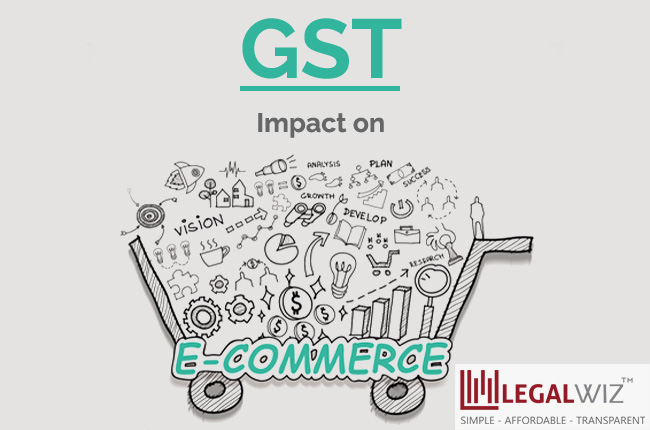Know how GST will impact to e-commerce businesses
Goods and Service Tax has extensively covered the e-commerce segment. The government for the first time has taken the initiative to regulate the online business, which has largely been unregulated. The new introductions have both positive and negative impact on the industry.
New regulations in GST for online business are as follows:
1. MANDATORY REGISTRATION:
All business carrying on e-commerce activity is required to register under GST irrespective of their turnover. In all other business the government has specified a threshold limit for all business. But in the e-commerce business there is no threshold limit so it is now mandatory for every e-commerce business to obtain GST Registration.
2. NO BENEFIT UNDER COMPOSITION SCHEME:
Government has introduced composition scheme for small and medium business. Under this scheme, businesses are required to file returns quarterly instead of monthly and pay taxes at nominal rates up to 2%. On the other hand the government has explicitly excluded e-commerce businesses from this scheme.
3. REGISTRATION IN EACH STATE:
Every business involved in e-commerce is required to get registered in each and every state from where goods & services are supplied. The business model of e-commerce is such that the sellers expect orders from anywhere in the country, hence, they have to apply for separate GST Registration for every state in which they are carrying out the operations (supply of goods) whether by the same name or with different name.
4. TAX COLLECTION AT SOURCE:
In the new GST rules a new concept is there of TCS i.e. Tax collected at source under this marketplace operators are mandatorily required to deduct a 1% as tax liability of seller and deposit it with government. This regime is not beneficial for the operators as the tax is to be paid to the government at every transaction and end of month.
5. LOGISTICS:
In the e-commerce industry logistics play an important role. There were certain restrictions on the movement as CST was across the states. But now GST will unite India removing restrictions on the movement of goods. The reduction in unnecessary logistics costs will increase profits in the industry.
6. EASE IN PAYING TAXES:
The government has made all the process of paying the taxes online. It will now be easy to pay taxes by the business.

Shrijay Sheth
Shrijay, co-founder of LegalWiz.in, is best known for his business acumen. On this platform, he shares his experiences backed by a strong understanding of digital commerce businesses. His more than a decade-long career includes a contribution to some of the highly successful startups and eCommerce brands across the globe.








Logistics is one crucial part of business for e-commerce. As GST reduces unnecessary taxes and gives profits to the logistics sector. this in turn helps e-commerce as it is depending on logistics. here is a blog to know about how GST influences other industries and how a logistics partner could help them in making margins.
GST has come up with a terror. Many people are taking it as a disadvantages but actually it has many advantages. The article mentioned here is very nice. The points mentioned here will helps in better performance of online business with new GST rules.